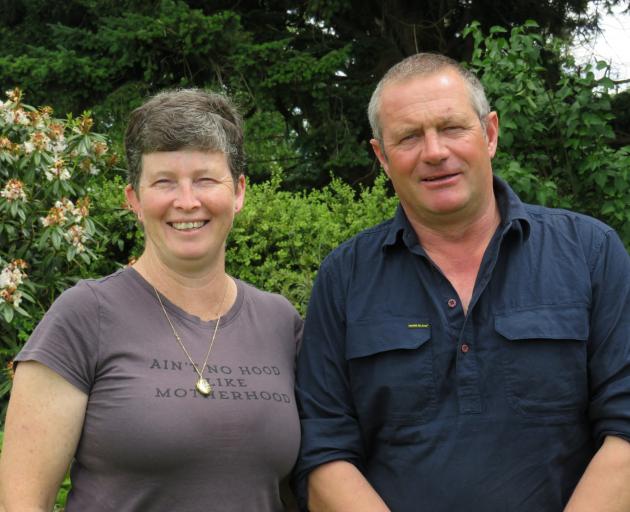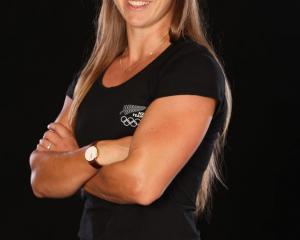
He is the third generation of his family to run the 370ha farm in Ermedale, halfway between Riverton and Otautau, since 1924. The family will next year mark 100 years on the property.
He and his wife Wendy wintered about 5000 sheep, including Texel, Texel-Coopworth, Texel-Suffolk and Textra, a composite breed he helped develop in 1996.
He was instrumental in initiating the Pastoral Greenhouse Gas Research Consortium to fund a trial by AgResearch on animal genetics and methane production levels.
From 2006 on results showed genetic differences and good reliability and heritability. Over several years Blackdale has put progeny through mobile screening chambers.
"I look at the lowest sons of the lowest sons of each sire line and I keep pushing the button on finding animals that are lower," he said.
Results this year showed a 20% variation of methane output between sires.
Sheep with low methane emissions could produce more growth and wool than higher emitters because they had traits including smaller stomachs and better digestibility and that was something that was "pretty cool", he said.
Selecting sheep for lower levels of methane was a "no-brainer" because it could increase production on farm and positively positioned New Zealand in world markets.
Breeding a flock with a lower methane output was a "slow and steady" process but he believed it was a cheaper, more practical and posed fewer market issues than giving sheep a vaccine or an inhibitor to chase a similar outcome.
Keeping animals healthy was a priority and he ran a closed flock and did not trade, to protect against animal health issues which could impact client flocks.
Environmental improvements on the farm include planting about 300 trees a year. A wetland was established on the farm to act as a nutrient trap about five years ago.
Leon fenced waterways on the farm about 20 years ago and he fenced in a manner to allow a small mob of sheep to graze a 10m buffer zone to stop the area being overrun with weeds and to stop bank erosion.
Leon’s education included a diploma of farm management with distinction from Lincoln University and being a Minnesota ag student trainee at the University of Minnesota in the United States.
He had been the director of several organisations including AgITO, Beef + Lamb Genetics, Beef + Lamb New Zealand, the New Zealand Meat Board, Ovita Ltd, Pastoral Greenhouse Gas Research Consortium, Treubh Dubh and Textra.
Awards he has won include the AC Cameron Award, an Environment Southland Community Award for environmental leadership in farming and a Massey University Innovation in Farming Award.
"It’s been a pretty nice ride but my favourite one is becoming a life member of Thornbury Young Farmers in 2010 and helping out the next generation." — Shawn McAvinue












